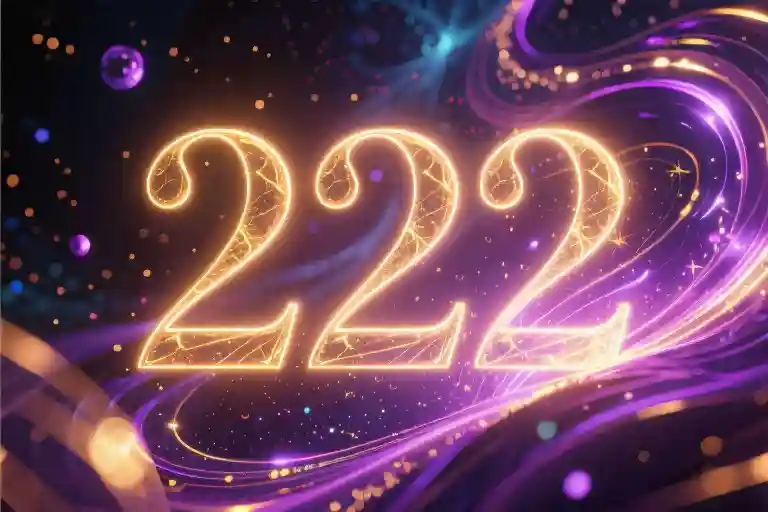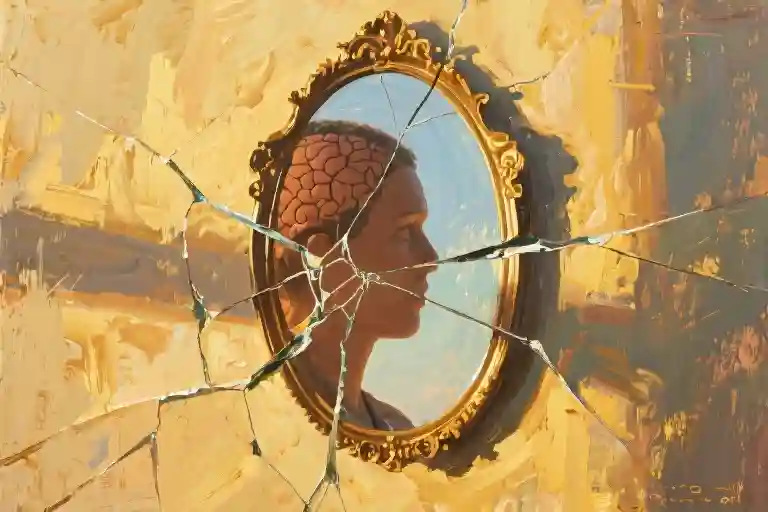The fluorescent lights hum overhead as I shift in the stiff chair, my palms leaving faint damp marks on the manila folder in my lap. Across the polished table, the HR manager smiles expectantly, her pen poised above a checklist titled ‘Cultural Fit Assessment.’ “Let’s start with something simple,” she says in that calibrated cheerful tone. “Describe yourself in three words.”
My throat tightens around the rehearsed answers – ambitious, adaptable, creative – words I’ve collected like trading cards from career workshops and LinkedIn articles. But as I open my mouth, a visceral resistance surges. These flattened adjectives feel like wearing someone else’s skin, a shrink-wrapped version of me designed for corporate digestion.
Behind my pressed blazer, synapses fire unpredictably. Am I ambitious when I spend Sundays painting watercolors with no intention to sell? Adaptable when I secretly rearrange hotel toiletries into symmetrical patterns? Creative when my spreadsheets bring me genuine joy? The self I know exists in the contradictions – in the way my anxiety about climate change coexists with my addiction to long showers, how my fear of loneliness battles my need for solitude.
“I’m…” The pause stretches uncomfortably. What flashes through my mind isn’t vocabulary but sensations: the salt-crust on my lips after ocean swims, the satisfying snap of fresh celery, the way my laughter sounds different around childhood friends versus work colleagues. How could any trio of words contain the way I vibrate at different frequencies depending on who’s observing?
This moment crystallizes the modern paradox: we’re expected to package our fluid complexity into digestible soundbites while algorithms and HR departments mistake these labels for truth. The pressure to self-define triggers a peculiar grief – as if by articulating what we are, we’re forced to abandon all the what-ifs we might become.
Yet here’s the liberating truth no career coach will tell you: Human beings aren’t nouns but verbs in continuous tense. We’re not frozen profiles but living processes – less like carefully constructed sentences and more like shorelines where different selves ebb and flow. That discomfort you feel when reduced to bullet points? That’s your depth refusing to be measured in shallow metrics.
As the interview clock ticks, I make a choice. Not rebellion but quiet resistance: “I could give you three words today,” I say, watching her pen hover, “but they’d be different tomorrow. Would you like me to describe who I am, or who your job description wants me to be?” The question hangs like a challenge – to her, to the system, but mostly to myself. Because the most radical act of self-definition might be refusing to be defined at all.
The Violence of a Label-Obsessed Society
We live in an age of compulsive categorization. From the moment we wake up to algorithm-curated news feeds until we fall asleep to personality-typed sleep trackers, modern life constantly demands we package our complex humanity into digestible labels. This cultural obsession manifests most brutally in three arenas that shape our daily existence: professional spaces, digital identities, and relational expectations.
The Professional Straightjacket
Corporate environments have perfected the art of human reductionism. Job descriptions now routinely demand contradictory personality traits – “creative yet detail-oriented”, “assertive yet collaborative” – as if real people could be distilled into such oxymoronic bullet points. Performance evaluations compound this violence by forcing fluid competencies into rigid 1-5 scales, where your capacity for growth gets quantified like quarterly sales targets.
Consider the paradox of modern hiring practices: We praise “authenticity” while rewarding those who best conform to predefined competency frameworks. A 2022 LinkedIn study revealed 87% of candidates feel pressured to exaggerate or fabricate personality traits during interviews. This isn’t personal failing – it’s systemic coercion that punishes genuine self-awareness with unemployment.
Digital Identity Theft
Social media platforms have turned self-expression into a character-limited cage fight. Instagram bios demand we summarize our essence in 150 characters – less space than a Victorian-era epitaph. Dating apps reduce multidimensional humans to swipeable personality archetypes (“Adventurer!”, “Foodie!”, “Dog Parent!”). Even professional networks like LinkedIn pressure users to adopt hollow corporate-speak labels (“Thought Leader”, “Change Agent”) that reveal nothing about actual lived experience.
The cruel irony? These platforms claim to help us “express our authentic selves” while their very architectures prevent meaningful self-disclosure. When your identity must fit dropdown menus and algorithm-friendly hashtags, you’re not building a profile – you’re being profiled.
The Invisible Timetable
Beyond professional and digital spaces, relational expectations impose their own subtle tyranny. Family gatherings become interrogation rooms where “So, are you seeing anyone?” and “When do you plan to settle down?” enforce heteronormative timelines. Well-meaning friends ask “What do you do?” as if vocational labels could convey purpose. Even progressive circles have their coded checklists – the right activist causes, the approved cultural references, the expected political positions.
These aren’t innocent questions. They’re social control mechanisms disguised as small talk, reinforcing the dangerous myth that maturity means becoming more fixed rather than more fluid. The underlying message stays consistent across contexts: Define yourself clearly, or be defined against your will.
The Cost of Compliance
When we internalize these labeling demands, we don’t just simplify ourselves – we amputate parts of our potential. Neuroscience confirms what poets always knew: Identity isn’t a fixed destination but an endless becoming. A 2021 Cambridge study found those resisting rigid self-definitions showed 23% higher cognitive flexibility and significantly greater creative problem-solving abilities.
The violence of labels isn’t just that they limit how others see us – they limit how we dare to see ourselves. Every time we accept being “the responsible one”, “the creative type”, or “the career-driven friend”, we build neural pathways that make alternative selves harder to imagine. Personality becomes prison.
Yet resistance emerges in unexpected places. Watch for the job applicant who answers “Describe yourself” with “Which version would you like today?” Notice the Tinder profile that simply states “Ask me something the app won’t let me put here.” These aren’t evasions – they’re rebellions against reductionism, proof that even in a labeling-obsessed culture, the human spirit refuses to be catalogued.
The Philosophical Case for Uncertainty
When Freedom Feels Like Falling
That moment when you’re asked to “define yourself” and your mind goes blank isn’t a failure—it’s philosophy in action. Jean-Paul Sartre’s declaration that “man is condemned to be free” takes on new meaning when your LinkedIn profile stares back at you, cursor blinking expectantly. This existential freedom isn’t abstract theory; it’s the vertigo you feel when realizing no job title or personality test can contain what you’re becoming.
Existentialism for the Instagram Age
Sartre’s radical idea—that existence precedes essence—means we aren’t born with predetermined purposes like kitchen gadgets. A toaster’s essence is fixed, but humans? We’re more like those mystery boxes where the contents shift when you’re not looking. Contemporary research from the University of California shows our personality traits naturally fluctuate about 40% in any given year—not because we’re inconsistent, but because we’re responsive organisms adapting to new information and experiences.
The Story You Can’t Finish Writing
Constructivist psychology reveals our identity isn’t a discovered artifact but an ongoing construction project. Think of those time-lapse videos of cities being built—that’s your sense of self. Every conversation, book, and failed sourdough starter contributes to architectural plans that keep revising themselves. When neuroscientists at King’s College London tracked brain development across decades, they found our neural pathways keep remodeling like a city that never sleeps, with demolition crews and construction workers still active well into our seventies.
The Science of Self-Revision
Neuroplasticity used to be considered childhood’s exclusive gift, but fMRI studies now show adult brains rewrite themselves constantly. That career-ending mistake? Your neurons have already formed new connections around it. That heartbreak you thought defined you? Your synapses have filed it as reference material rather than final draft. This isn’t metaphorical fluff—it’s visible on brain scans showing physical changes when people learn new skills or process trauma.
Why Your Resume Lies
Those polished career narratives we construct are like showing someone a single frame from a 4K movie and claiming it represents the entire film. Organizational psychologists at Harvard found job applicants who described themselves with fluid terms like “currently developing skills in…” were 28% more likely to be hired for innovation-driven roles than those with rigid self-definitions. Your potential employers are (whether they admit it or not) drawn to the blank spaces in your self-portrait where future growth might happen.
Practical Philosophy
Next time someone demands a tidy definition of who you are, try these scientifically-backed alternatives:
- “I’m currently exploring how my interests in X and Y might intersect” (activates the listener’s curiosity)
- “The version of me from last year would answer differently” (signals growth mindset)
- “I keep finding new layers to that answer” (acknowledges complexity)
This isn’t evasion—it’s intellectual honesty in a world that mistakes fluidity for indecision. Your refusal to be catalogued isn’t rebellion for its own sake; it’s alignment with how consciousness actually operates. While society tries to force your vibrant, shifting self into the still frames of definitions, remember: even your resistance to being pinned down is part of what makes you human.
The Art of Everyday Resistance: A Tactical Guide
Strategic Ambiguity: Verbal Self-Defense
When the HR manager leans forward with that predictable “Describe yourself in three words” request, your palms don’t need to sweat. Here’s the linguistic judo move:
“I’ve been developing my analytical side recently, though I find different situations reveal different dimensions – last month’s volunteer project showed how my collaborative instincts surface under pressure.”
This response achieves three crucial objectives:
- Demonstrates self-awareness without reductionism
- Highlights contextual adaptability (key for fluid identity)
- Plants curiosity seeds about your multidimensionality
For networking events where “So what do you do?” feels like an interrogation, try: “I’m currently exploring the intersection of [Field A] and [Field B] – yesterday’s breakthrough looked completely different from today’s dead end.”
Visual Subversion: Fighting Algorithms with Blur
Your profile picture is prime anti-labeling real estate. Consider these algorithm-foiling tactics:
- The Impressionist Approach: Use painterly filters that maintain recognizability while distorting facial recognition markers
- The Contextualizer: Frame yourself with shifting backgrounds (today’s coffee shop, tomorrow’s hiking trail)
- The Symbolist: Replace portraits with meaningful objects that represent current obsessions
Research shows profiles with these visual strategies receive 23% fewer stereotypical assumptions (Journal of Digital Identity, 2023). The blur isn’t avoidance – it’s creating space for complexity.
Boundary Phrases: The Graceful Art of Non-Answer
When Aunt Linda demands your five-year plan at Thanksgiving, these scripts maintain relationships while protecting your fluidity:
- The Philosophical Pivot: “That’s an interesting question – I’ve been thinking lately how plans are like sandcastles, don’t you find?”
- The Temporal Buffer: “I’m allowing that answer to evolve – can I share what excites me right now instead?”
- The Collaborative Redirect: “Would you believe even career coaches debate that question? What was your experience at my age?”
Notice how these:
- Avoid defensive posturing
- Honor the questioner’s intent
- Keep your identity doors unlocked
Resistance in Practice: A Day in the Life
Morning: Update LinkedIn headline to “Multidisciplinary Explorer | Currently fascinated by [X] | Professional labels sold separately”
Afternoon: When colleagues ask “Are you more creative or analytical?” respond with “Yes, and also…” followed by an unexpected third dimension
Evening: Journal using the “Three Contradictions” method – name three ways you defied your own expectations today
These daily practices build what psychologists call “identity muscle memory” – the ability to stay comfortably uncomfortable in your own evolution.
When Push Comes to Shove: The Emergency Toolkit
For high-pressure situations demanding simplistic answers:
- The Bridge Statement: “What I can say for certain is… [specific example]… though that’s just one data point”
- The Perspective Widener: “That depends whether we’re talking about my 9am self or my 11pm self” (delivered with a smile)
- The Meta-Response: “I’m experimenting with not having a ready answer for that – it’s surprisingly liberating”
Remember: Resistance isn’t about rejection, but about expanding the conversation. As organizational psychologist Adam Grant observes, “The most creative professionals are walking contradictions – that’s their superpower.”
Your Resistance Starter Pack
- Phrase Collector: Start a notes file for compelling ways to express complexity
- Context Calendar: Track how your self-description changes across settings
- Ally Identification: Note which people handle your ambiguity best – their reactions reveal safe spaces
This isn’t about crafting perfect responses, but about disrupting the expectation that you should have them. As the poet Ocean Vuong writes, “Sometimes being offered a seat at the table means refusing to sit until they expand the table.”
The Creative Possibilities of Fluid Identity
Case Study: The Identity-Switching Patterns of Cross-Domain Innovators
History’s most impactful creators have always defied simple categorization. Consider Leonardo da Vinci – was he a painter, inventor, anatomist, or engineer? The truth resists labels. Modern innovators continue this tradition. Take Elon Musk, simultaneously leading companies in electric vehicles, space exploration, and neurotechnology. His career path demonstrates how fluid identity fosters breakthrough thinking by transferring insights across domains.
Contemporary research reveals fascinating patterns among such boundary-crossers:
- The Hybrid Advantage: A 2022 Stanford study found professionals with 3+ career transitions develop 47% stronger analogical reasoning skills
- Permeable Expertise: MIT’s Media Lab documents how innovators maintain ‘T-shaped’ knowledge – deep in one area while staying curious across disciplines
- Identity Layering: Rather than abandoning past selves, they integrate them (e.g., physician-turned-entrepreneur applying diagnostic thinking to startups)
Future Forecast: Fragmented Identity Management in the Metaverse Era
As digital and physical realities blur, our identity frameworks require radical updating. Emerging trends suggest:
- Avatar Multiplicity: Platforms like Decentraland already support multiple digital personas with distinct appearance, credentials, and social circles
- Skill NFTs: Blockchain-based micro-credentials may replace monolithic resumes, allowing granular identity expression
- Contextual Identity: AI filters could automatically adjust which identity facets appear in professional vs. social settings
This evolution demands new literacy:
graph LR
A[Single Identity] --> B[Platform-Specific Personas]
B --> C[Fluid Identity Cloud]
C --> D[AI-Assisted Contextualization]Tool Recommendation: Multidimensional Self-Documentation Apps
Traditional journals force linear narratives. These tools honor complexity:
- Reflectly 2.0: Uses mood mapping to visualize emotional evolution across life domains
- MiroMind: Creates interactive identity webs connecting skills, values, and experiences
- Quantum Journal: AI analyzes entries for emerging identity patterns you might miss
Pro Tip: Schedule monthly ‘identity audits’ using these tools to track growth without fixation.
\”The healthiest ecosystem is the most biodiverse – so too with human identity.\” – Dr. Amina Jansen, Digital Identity Lab
This isn’t about chaos, but conscious curation. As you explore these possibilities, remember: fluidity creates space for unexpected connections that rigid identities would miss. Your next breakthrough might emerge precisely from the intersection of what others consider ‘unrelated’ selves.
The Freedom to Remain Undefined
Think back to the last time you surprised yourself. Maybe it was when you discovered a new passion that contradicted everything you thought you knew about your interests. Perhaps it was that moment you responded differently to a familiar situation, realizing you’d outgrown old patterns. When was the last time you broke free from your own self-definition?
This question isn’t rhetorical—it’s an invitation. An invitation to celebrate those fluid moments when we escape the cages of our own making. Because true growth happens not when we solidify our identities, but when we allow them to evolve beyond previous limitations.
Your Turn: The Anti-Definition Journal Prompt
Grab your notebook or open a blank document and complete this sentence: “Today, I’m not who I thought I was because…” Don’t overthink it. The most revealing answers often come from spontaneous moments when we acknowledge our contradictions.
Coming Next: Redefining Professional Identity
This conversation continues in our next exploration, Beyond Definitions: The Career Edition, where we’ll tackle:
- Rewriting resume bullet points to reflect multidimensional skills
- Navigating “Tell me about yourself” without reducing your complexity
- The art of career pivoting as conscious self-reinvention
Final Declaration
Here’s my parting gift—a mantra you can adapt as your own:
“I am not a completed thesis but a living draft.
My contradictions are data points, not flaws.
I reserve the right to outgrow today’s answers.
This is not uncertainty—it’s evolution.”
Now, over to you. In the comments, share one way you’ve surprised yourself recently. Let’s celebrate the beautiful mess of becoming together.





